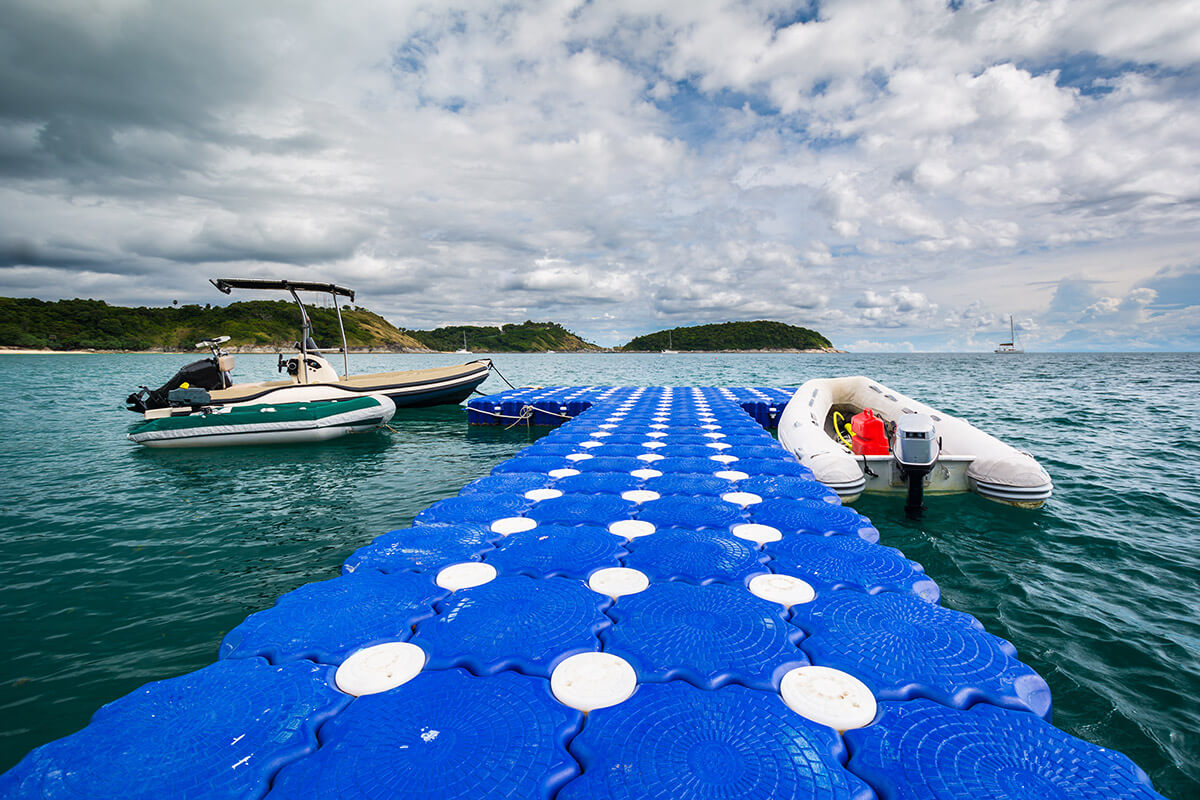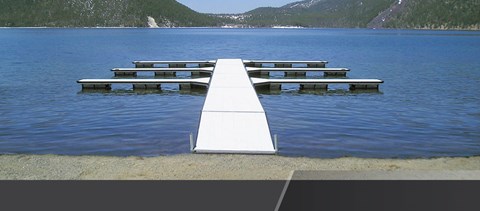Browsing the Options: Selecting the Right Dock Company for Your Floating Dock Project
Browsing the Options: Selecting the Right Dock Company for Your Floating Dock Project
Blog Article
Floating Docks: The Perfect Choice for Versatile Water Access
Floating docks existing an engaging solution for a variety of water accessibility requires, offering adaptability that goes beyond conventional mooring alternatives. Their capacity to adapt to changing water levels while guaranteeing security and safety and security makes them specifically advantageous for both leisure and commercial applications. Furthermore, the modular nature of floating docks assists in personalization, satisfying details needs. The nuances of setup and maintenance, together with the array of applications, warrant a closer assessment to completely value their possible advantages and effects for river accessibility strategies.
Benefits of Floating Docks
Floating docks offer numerous advantages that enhance water access for different applications. Their capacity to climb and drop with transforming water degrees makes them particularly useful in atmospheres with rising and fall tides or seasonal variants. This flexibility ensures that vessels can conveniently anchor without worry for the water's deepness, giving a trustworthy system for recreational, business, and commercial usages.
Additionally, floating docks are often built from long lasting materials that stand up to deterioration, making them appropriate for long-lasting usage in aquatic settings. Their installation is commonly much less invasive than typical fixed docks, minimizing the ecological impact and facilitating quicker release (dock company). This versatility permits less complicated relocation or reconfiguration according to individual needs or ecological changes
Safety is an additional key advantage; floating docks can give secure access for people boarding or getting off from watercrafts and minimize the danger of mishaps associated with unpredictable surface areas. They can be created to fit a range of devices, such as fenders and cleats, improving performance. On the whole, floating docks represent an efficient solution for enhancing water access across varied sectors while promoting safety and security and ecological sustainability.

Sorts Of Floating Docks
Different sorts of floating docks satisfy various needs and settings, each designed with details attributes to enhance capability. The most typical types include modular docks, which contain interlocking sections that enable for very easy customization and development. These docks are excellent for leisure usage, as they can be customized to fit numerous watercraft dimensions and water conditions.
An additional preferred choice is the stationary floating dock, which stays secured in position yet floats with altering water degrees. floating docks. This kind is particularly matched for locations with minimal tidal variations, giving secure access for fishing or swimming. In addition, there are drive-on docks, which feature a sloped style that enables watercrafts to easily drive on and off, making them ideal for personal boat and smaller vessels
For business applications, sturdy floating docks are readily available, created from enhanced materials to endure considerable tons and severe aquatic atmospheres. Finally, environmentally friendly floating docks use sustainable materials and designs to minimize environmental influence, frequently incorporating features like vegetation to support regional wild animals. Recognizing the various kinds of floating docks makes sure that customers can pick one of the most suitable remedy for their details requirements.
Setup Refine Summary
A successful installation of floating docks calls for cautious planning and attention to information to guarantee optimum performance and security. The preliminary step entails analyzing the site conditions, consisting of water deepness, existing, and possible obstacles. This assessment educates the choice of the ideal dock products and layout customized to the details atmosphere.
Next, acquiring essential licenses is this link critical, as numerous territories have guidelines regarding construction on water bodies. Once permissions are protected, the installment can continue. Begin by preparing the foundation, which might entail anchoring systems or pilings customized to the dock kind and regional conditions.
Complying with the foundation configuration, put together the dock sections according to maker requirements. Make sure that all components are securely attached and lined up to stand up to environmental stress and anxieties. Position the dock in the marked location, guaranteeing it is degree and steady.

Maintenance Tips and Best Practices
After the installment procedure is complete, ongoing maintenance plays an important function in making certain the durability and functionality of floating docks. Routine examinations must be carried out to recognize any type of indications of damage, wear, or deterioration - floating dock company. Look for any kind of loose fittings, fractures, or splitting up in the dock areas, as these can jeopardize structural integrity
Cleansing the dock is vital to remove debris, algae, and various other build-up that can affect its look and security. Utilize a gentle stress clean periodically to maintain sanitation without creating damages to the surface. Additionally, using a safety sealer every few years can help improve long life and resist environmental wear.
Focus on the mooring lines and anchors, ensuring they are protected and free from deterioration. Change any degraded components quickly to avoid hazards. Seasonal modifications may also be necessary; throughout extreme climate condition, strengthening the dock or repositioning can prevent damages.
Applications for Floating Docks
Floating docks serve a wide range of applications, satisfying both leisure and commercial requirements. In leisure setups, they provide seamless access to waterways for tasks such as boating, fishing, and swimming. Their adjustable nature permits setup in varying water degrees, making certain stable and risk-free gain access to no matter tidal fluctuations.
Readily, floating docks are vital for marinas and beachfront companies. They assist in the docking of vessels, enabling effective packing and unloading of items. Their modular style allows for very easy expansion or reconfiguration to fit altering company needs, making them perfect for watercraft services, tour operations, or fishing charters.
Additionally, floating docks are used in environmental applications such as marine research and habitat restoration. They can function as systems for scientific studies, keeping track of water quality, or conducting wildlife surveys without disturbing sensitive ecosystems.
In have a peek at this site industrial contexts, floating docks are utilized in building jobs, providing access to hard-to-reach locations for equipment and employees. Their convenience, toughness, and marginal effect on the environment make them an ideal option for a large range of applications, enhancing both functionality and ease of access in various water-based settings.
Final Thought
In verdict, floating docks stand for an ideal service for diverse water gain access to requires, owing to their adaptability, toughness, index and modular design. These structures assist in safe mooring for different applications while reducing ecological influence throughout installation. The decreased maintenance demands further enhance their functionality. Floating docks offer as an important property for entertainment, industrial, and environmental tasks, making certain reputable access to waterways and advertising lasting techniques in aquatic atmospheres.
Floating docks existing a compelling remedy for a selection of water access requires, supplying versatility that transcends traditional mooring choices.Floating docks deal numerous advantages that improve water gain access to for numerous applications. Generally, floating docks represent an effective solution for enhancing water gain access to across diverse markets while advertising security and ecological sustainability.
One more preferred alternative is the stationary floating dock, which continues to be secured in place but drifts with changing water degrees.In verdict, floating docks stand for an optimal option for diverse water access needs, owing to their adaptability, sturdiness, and modular style.
Report this page